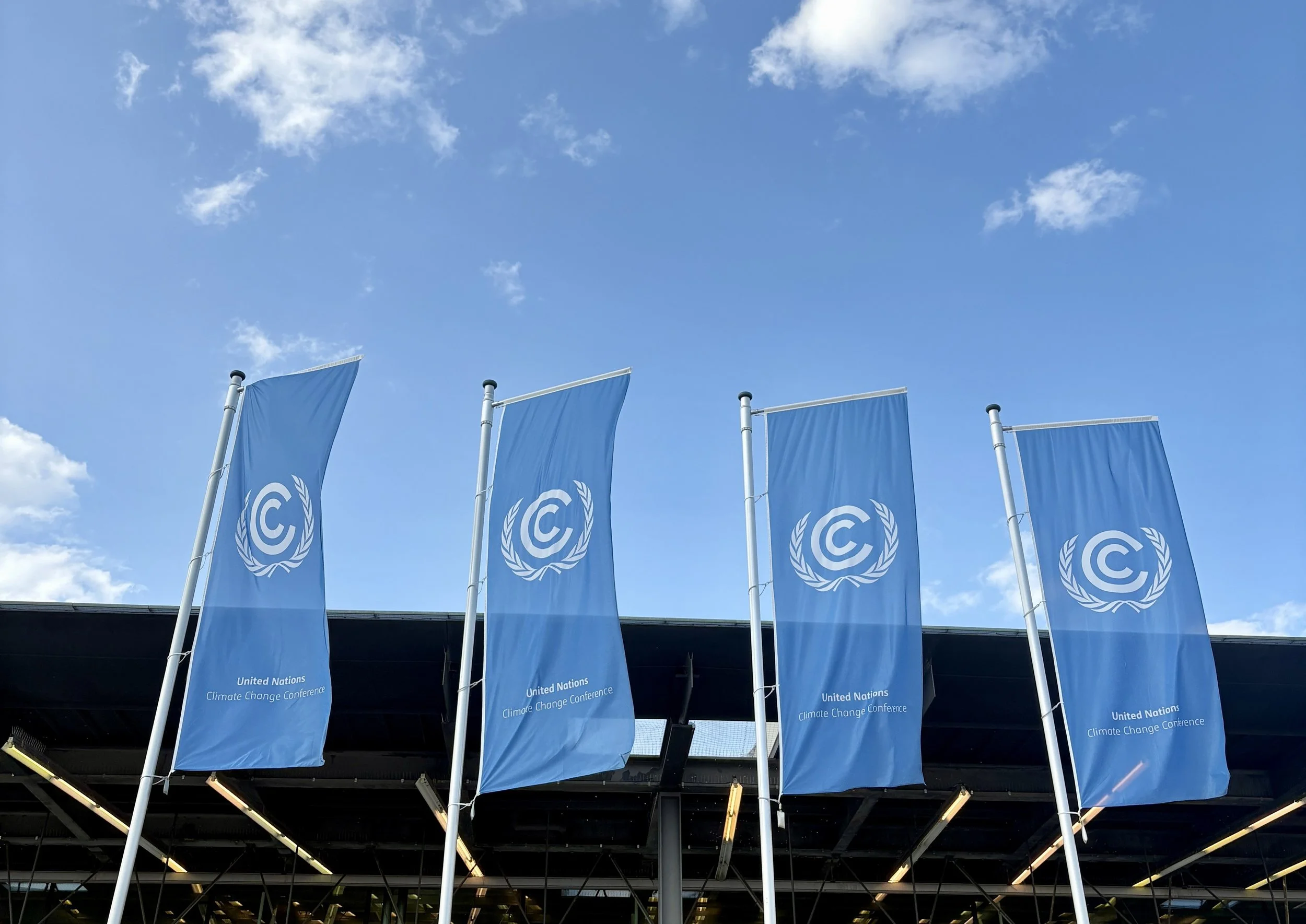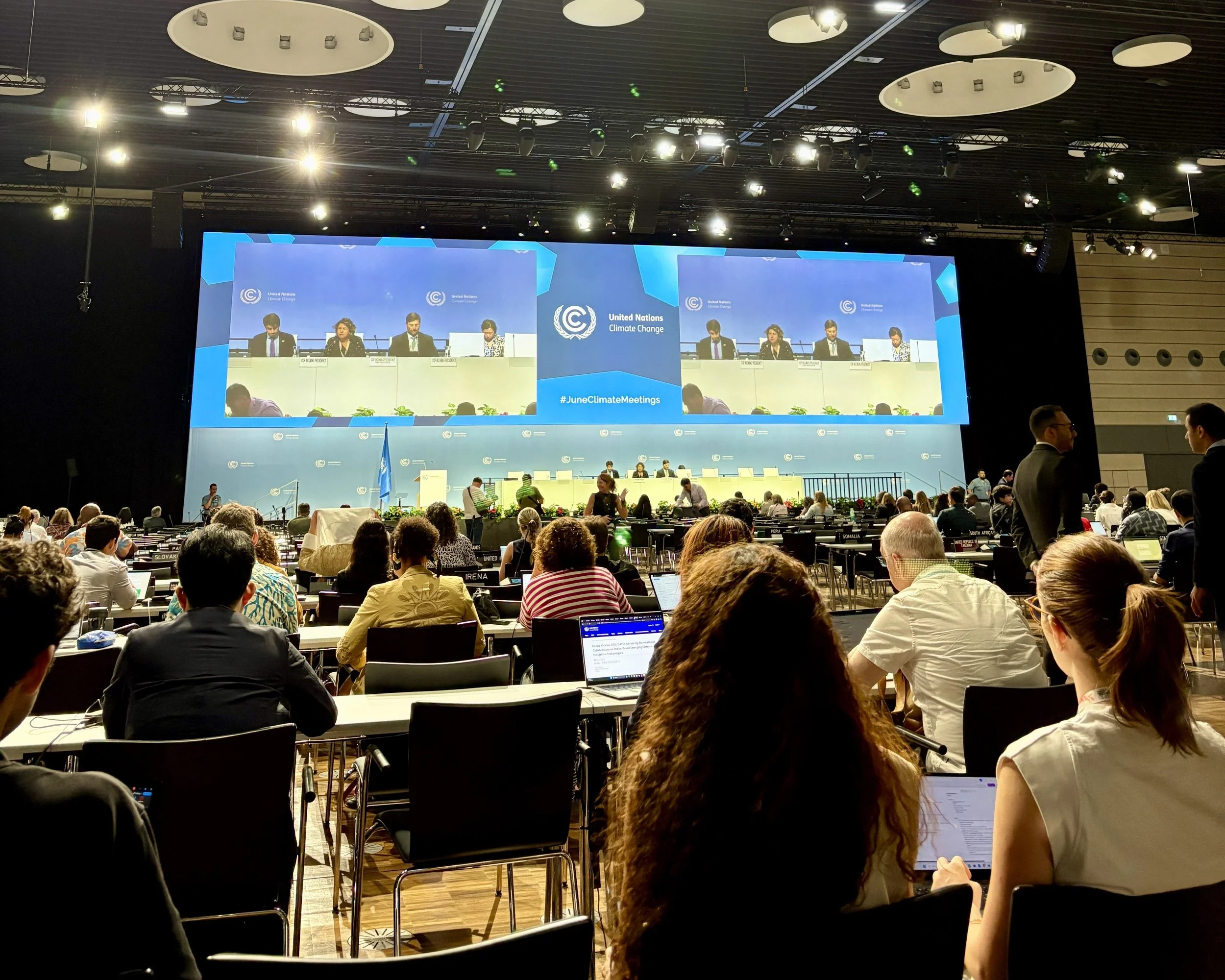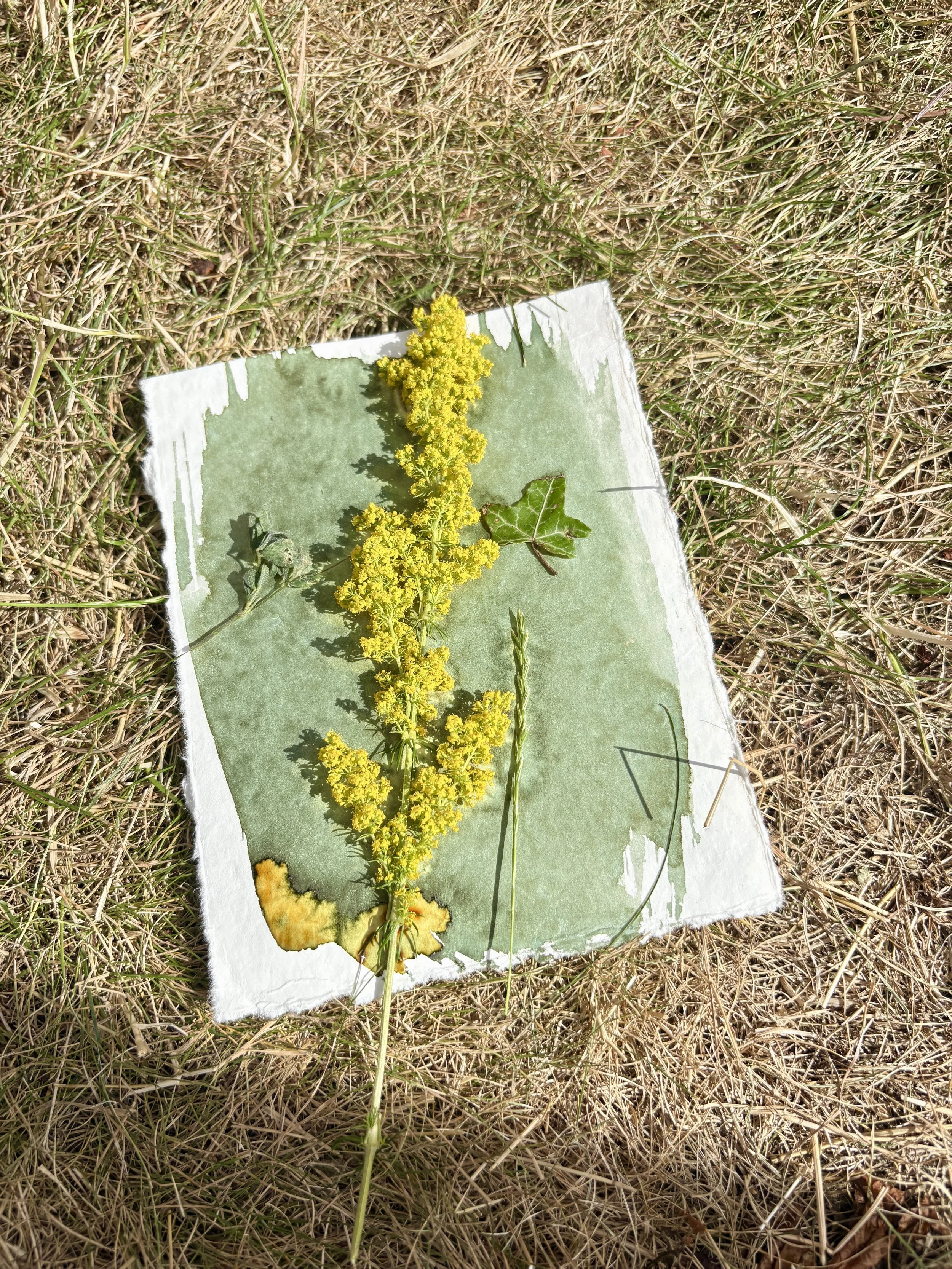Fighting for Our Future in International Climate Spaces
Last month, I had the opportunity to attend the Bonn Intersessional SB 62 – the UN climate meetings that lead up to COP30 in Brazil this November. Although I was only there for a few days out of the two weeks, the experience left me with deep reflections as a Mi’gmaw woman stepping into the international climate space for the first time.
The Bonn Intersessional is a mid-year UN climate meeting where negotiators prepare for the annual COP summit. Two main groups (SBSTA and SBI) meet to track progress, offer advice, and plan next steps.
While it’s meant to be a technical space, Bonn has grown into a major gathering for countries, organizations, and activists. Before the official sessions begin, groups like Indigenous networks meet to coordinate and share strategies. During the event, there are daily negotiations, including panels, workshops, and expert meetings – all to keep climate action moving forward.
If I could describe it in one word: overwhelming. And if it felt overwhelming for me – despite the support systems I have and the opportunities I’ve had to build my understanding – it points to a larger issue: about how climate spaces are often filled with jargon and bureaucratic processes that make them difficult to access in the first place. So I begin with a reflection on the importance of pushing for more accessible ways of sharing knowledge and recognizing different forms of expertise.
Our people are considered some of the first and worst to experience the impacts of climate change, and it is critical that we have access to the processes that claim to represent solutions.
Sitting in those rooms, my mind was back home. In particular, I was thinking about how my community, Listuguj, has seen a decline in salmon stocks over the last few years. We are a salmon people – our identity as Mi’gmaq is deeply tied to the salmon. The raids of 1981 were more than just about our rights to fish – but about protecting what has always been ours. The decline in salmon is heartbreaking for me on more than just an environmental level, but through a cultural and spiritual level too. These changes in the water signal imbalances with our ecosystems and our overall relationship with the land.
All this to say that the conversations happening in international spaces can feel far removed from what’s happening on the ground in our communities. There’s a gap between what’s being discussed in these rooms and what’s happening on our lands. There’s a gap in language, , in priorities, and in urgency. Climate finance mechanisms and carbon markets don’t speak to the loss of salmon, or the trauma experienced by those who have to evacuate their communities every summer due to wildfires.
But it’s critical that we show up in these spaces – because with or without us, these negotiations will continue to unfold. It’s better that we’re there to ensure our truths are included, our communities are represented and our rights are asserted in spaces where decisions are being made about the future of our lands and waters.
I left Bonn with more questions than answers, and with a deeper awareness of the amount of work that still needs to be done to make these spaces inclusive of Indigenous people in order to facilitate a deeper awareness of the work that is needed for the rights of Indigenous peoples to be respected in these international spaces. As I prepare for COP30, I carry with me the salmon – a reminder of why I’m doing this work. I hope that my future children, and their children, will one day be able to feast with their families and exercise the rights my community has fought so hard to protect.
About the Author
Alexa Metallic is a proud L'nusgw (Mi'gmaq woman) from Listuguj Mi'gmaq First Nation. She currently serves as the Policy and Research Manager for Indigenous Climate Action (ICA). Her work and research focus on Mi’gmaq language, rights and revitalization.




